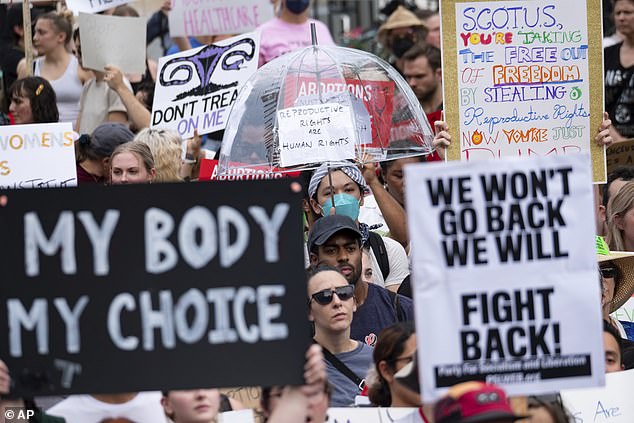A second attempt by Democrats to pass legislation protecting access to in vitro fertilization (IVF) and other fertility treatments was blocked by Senate Republicans.
The vote came as lawmakers put the fight for reproductive access front and center 49 days before the next general election.
Senate Democrats led by Chuck Schumer on Tuesday forced a new vote on the IVF Rights Act after Republicans blocked a first attempt to pass the legislation in June.
A threshold of 60 votes was needed to advance the bill, but it failed 51 to 44, with every senator in the Democratic caucus voting in favor of the legislation.
Before the vote, Republicans criticized Democrats’ effort to pass the bill that would protect and expand access to fertility treatment nationwide.
Senate Democrats led by Chuck Schumer on Tuesday forced a new vote on the IVF Rights Act after Republicans blocked a first attempt to pass the legislation in June.

Former President Trump called on Alabama to find a solution following the ruling and said he supports the availability of IVF treatment. Democrats say the Alabama ruling is a direct result of the Supreme Court overturning Roe v Wade with the addition of three justices he appointed.
“Here we go again with more time-wasting show votes aimed at propping up vulnerable Democrats ahead of an election,” the Republican senator said. Sen. Cindy Hyde-Smith of Mississippi in a statement before the procedural vote.
Smith, who chairs the Pro-Life Caucus, said he supports IVF, but called the legislation flawed and criticized the vote, saying, “A better use of time might be to consider truly critical legislation like the appropriations bills or the National Defense Authorization Act.
Democrats renewed their efforts to pass the legislation as the issue has been a major focus on the election campaign trail. There have long been calls for reinstating Roe v. Wade and protecting IVF.
Just weeks ago, Trump announced that he wants the government to pay for or ensure that insurance covers all costs associated with IVF treatment, indicating that Republicans are vulnerable on this issue.
“President Trump has said he wants to make it easier for mothers and fathers to have babies, including by supporting IVF in every state,” his campaign said.
It’s a more progressive line on IVF that has some Republicans divided ahead of the election.
Sens. Ted Cruz, R-Texas, and Katie Britt, R-Ala., have their own version of a bill to provide IVF and fertility services, but Democrats say it doesn’t go far enough.
Britt and Cruz again attempted to push through their own bill, claiming it was the only one that could protect access to IVF while “safeguarding religious freedom,” but the bill was again blocked.
After Republicans failed in a final effort to pass Senate Democrats’ legislation, Democrats seized on the opportunity to criticize their Republican colleagues.
The fight over IVF protections erupted earlier this year after the Alabama Supreme Court ruled that embryos are children.
The decision sparked outrage across the country from both Republicans and Democrats, and left thousands of families trying to have children through IVF in limbo.
A month later, Alabama’s Republican governor, Kay Ivey, signed a law protecting access to IVF after popular outcry.
In June, lawmakers took a similar vote just hours after the Supreme Court upheld access to the abortion pill mifepristone and rejected a lawsuit that would have affected abortion access nationwide.

Embryo selection for IVF shown under an optical micrograph: the treatment is overwhelmingly popular among Americans
It was the conservative court’s first major decision on reproductive rights since it overturned Roe v. Wade, ending the constitutional right to abortion nationwide in 2022.
Mifepristone is used in more than half of abortions in the United States and has been used by more than 5.6 million women since its approval in 2000.
The National Republican Senatorial Committee previously told DailyMail.com that none of its candidates support banning IVF.
House Speaker Mike Johnson, R-La., has also said he supports IVF treatment.
But he, along with 124 other House Republicans, supported the “Life Begins at Conception” bill last year.
It does not include an exception for IVF treatment, although it does state that nothing in the bill should be “construed as authorising the prosecution of any woman for the death of her unborn child”.


